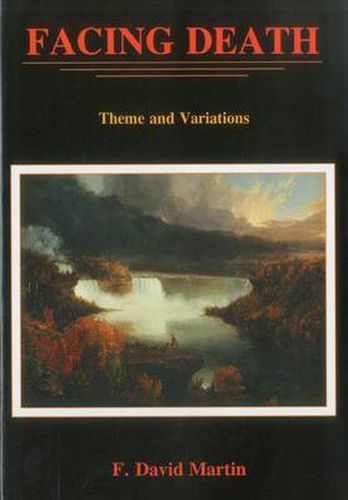Readings Newsletter
Become a Readings Member to make your shopping experience even easier.
Sign in or sign up for free!
You’re not far away from qualifying for FREE standard shipping within Australia
You’ve qualified for FREE standard shipping within Australia
The cart is loading…






If we do not, at some point in our life, face death-thinking hard and straight about it- we turn away from our authenticity. If that facing rejects irrational faith, dogmas, mystification, and personal immortality, is there yet a path free of despair? David Martin argues that participatory pantheism-the experience of the secular and the sacred both as a unity and as a mystery-provides such a path. As we age, the future shortens and the past lengthens. But if we face death, more and more memories-especially the involuntary-are stirred up and cohere into stronger, as well as new, unities. What paradise there is for th elderly is not so much in what is happening but in remembering what happened in a meaningful way. For Dr. Martin, transformation of memory into the memorable is the transcendent meaning each of us can wrest from our coming to death. Since nature is our home, Dr. Martin reasons, the more we think participatively (thinking from ) rather than only objectively (thinking at), the more we are aware of the mystery and the majesty of that home. The more we know about our world and ourselves, the more we can understand how much we don’t know. This kind of thinking is a thanking. It brings us within the sacred. We are anchored, and the churning of change no longer sweeps us away.
$9.00 standard shipping within Australia
FREE standard shipping within Australia for orders over $100.00
Express & International shipping calculated at checkout
If we do not, at some point in our life, face death-thinking hard and straight about it- we turn away from our authenticity. If that facing rejects irrational faith, dogmas, mystification, and personal immortality, is there yet a path free of despair? David Martin argues that participatory pantheism-the experience of the secular and the sacred both as a unity and as a mystery-provides such a path. As we age, the future shortens and the past lengthens. But if we face death, more and more memories-especially the involuntary-are stirred up and cohere into stronger, as well as new, unities. What paradise there is for th elderly is not so much in what is happening but in remembering what happened in a meaningful way. For Dr. Martin, transformation of memory into the memorable is the transcendent meaning each of us can wrest from our coming to death. Since nature is our home, Dr. Martin reasons, the more we think participatively (thinking from ) rather than only objectively (thinking at), the more we are aware of the mystery and the majesty of that home. The more we know about our world and ourselves, the more we can understand how much we don’t know. This kind of thinking is a thanking. It brings us within the sacred. We are anchored, and the churning of change no longer sweeps us away.